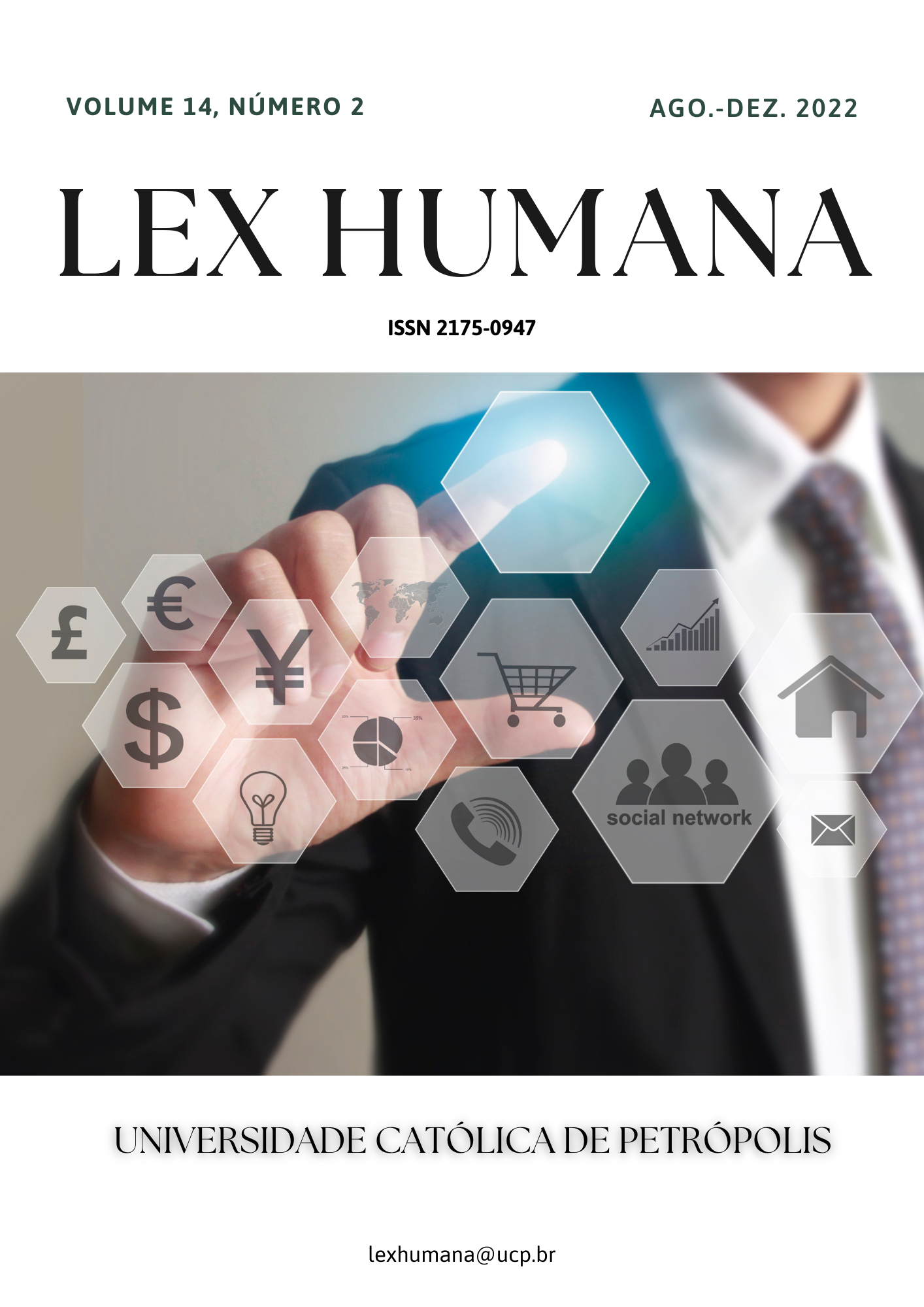Abstract
The article analyzes one of the types of atypical employment – remote work and the adopted amendments to Chapter 49.1 of the Labor Code of the Russian Federation. The authors consider remote work as a special form of employment that allows using labor resources during a pandemic and other emergencies more efficiently, reflecting the flexibility of legal regulation of labor relations in the Russian Federation. The authors analyzed certain provisions of labor legislation in the field of remote employment, and also used research methods such as historical, controversial, involved, deduction, identification-legal analysis. The importance of remote employment has been determined, which consists in the ability to work in the conditions of the modern distribution of the population, the use of innovative technologies, the development of the labor market, reflecting the improvement of the social role of atypical employment, the economic and technical development of the country. Authors analyzed the legal guarantees of remote workers in the performance of their work duties. Attention has been drawn to the positive and negative aspects of the legal regulation of remote employment. The article paid attention to the systemic problems in establishing the working conditions of remote workers. The article also revealed the problems of applying the hotel provisions of the Labor Code of the Russian Federation and substantiates the directions for overcoming them.
References
Baieva, N. A., Burkin, D. O., Vysheslavova, T. F., & Lukinova, S. A. (2017). Kontseptsiya sotsialnogo gosudarstva i ee realizatsiya v Rossiiskoi Federatsii [The concept of the welfare state and its implementation in the Russian Federation]. Journal of Advanced Research in Law and Economics, 8(5), 1446-1455.
Baieva, N. A., Vysheslavova, T. F., & Lukinova, S. A. (2019). Printsip spravedlivosti v prave sotsialnogo obespecheniya [The principle of equity in social security law]. Journal of Advanced Research in Dynamical and Control Systems, 11(SI 8), 2754-2759.
Bezbakh, V. V., Koncheva, V. A., & Mendosa-Molina, S. V. (2018). Osobennosti pravovogo regulirovaniya truda distantsionnykh rabotnikov [Features of legal regulation of labor of teleworkers]. Probely v rossiiskom zakonodatelstve, 3, 244-246.
Kasevich, E. V., Atayan, G. Yu., Amvrosova, O. N., Stankevich, G. V., & Kara-Kazaryan, T. V. (2019). Financial control as a legal institution: A comparative legal analysis of the Russian and EU expertise. In E. Popkova, V. Ostrovskaya (Eds.), Perspectives on the use of new information and communication technology (ICT) in the modern economy. ISC 2017. Advances in intelligent systems and computing (Vol. 726, pp. 439-445). Cham, Switzerland: Springer. https://doi.org/10.1007/978-3-319-90835-9_52
Klyukovskaya, I. N., Cherkashin, E. Y., Gabrilyan, R. R., Semenov, V. Y., & Melekayev, R. K. (2018). Methodological basis of the theoretical and legal research of integration processes in modern states. International Journal of Engineering and Technology, 7(4.38), 261-264. http://dx.doi.org/10.14419/ijet.v7i4.38.24478
Koncheva, V. A., & Odintsov, S. V. (2018). Aktualnye voprosy pravovogo regulirovaniya truda otdelnykh kategorii rabotnikov [Topical issues of legal regulation of labor of certain categories of workers]. Imushchestvennye otnosheniya v Rossiiskoi Federatsii, 12(207), 25-30. http://dx.doi.org/10.24411/2072-4098-2018-10123
Korshunova, T. Yu. (2020). Dogovor o distantsionnoi rabote kak sposob oformleniya netipichnykh trudovykh otnoshenii [A teleworking agreement as a way to formalize an atypical employment relationship]. Zhurnal rossiiskogo prava, 2, 112-125. https://doi.org/10.12737/jrl.2020.021
Navasardova, E. S., Nutrikhin, R. V., Zinoveva, T. N., Shishkin, V. A., & Zholudeva, Yu. V. (2018). Kodifikatsiya prirodno-resursnogo zakonodatelstva v Rossiiskoi imperii [Modification of natural resource legislation in the Russian Empire]. Journal of Advanced Research in Law and Economics, 9(1), 183-193.
Smirnov, D. A., & Strus, K. A. (2015). General scientific analysis of implementation of principles of law in the contemporary Russian legal basis. Indian Journal of Science and Technology, 8(S10), 84867. https://doi.org/10.17485/ijst/2015/v8iS10/84867
State Duma Committee on Labor, Social Policy and Veterans Affairs. (2020). Draft Federal law "On amendments to the Labor Code of the Russian Federation regarding the regulation of remote work" of June 16, 2020 No. 973264-7. https://sozd.duma.gov.ru/bill/973264-7
State Duma of the Federal Assembly of the Russian Federation. (1994). The Civil Code of the Russian Federation No. 51-FZ of November 30, 1994. Sobranie Zakonodatel’stva Rossiiskoi Federatsii [SZ RF] [Collection of Legislation of the RF] 05.12.1994, No. 32, Item 3301.
State Duma of the Federal Assembly of the Russian Federation. (2001). The Labor Code of the Russian Federation No. 197-FZ of December 30, 2001. Sobranie Zakonodatel’stva Rossiiskoi Federatsii [SZ RF] [Collection of Legislation of the RF] 07.01.2002, No. 1 (Part 1), Item 3.
State Duma of the Federal Assembly of the Russian Federation. (2020). Federal law of December 29, 2020 No. 477-FZ “On amendments to the Labor Code of the Russian Federation”. Sobranie Zakonodatel’stva Rossiiskoi Federatsii [SZ RF] [Collection of Legislation of the RF] 04.01.2021, No. 1 (Part 1), Item 16.
Stepanov, V. (2013). Distantsionnye rabotniki – Novaya kategoriya rabotnikov v rossiiskom trudovom prave [Remote workers – A new category of workers in Russian labor law]. Trudovoe pravo, 6, 9-12.
Supreme Court of the Russian Federation. (2019). The Definition of the Judicial Board for Civil Cases of the Supreme Court of the Russian Federation of September 16, 2019, No. 5-KG19-106. https://www.vsrf.ru/stor_pdf.php?id=1820422
Tarusina, N. N., Lushnikov, A. M., & Lushnikova, M. V. (2017). Sotsialnye dogovory v prave: Monografiya [Social contracts in law: Monograph]. Moscow, Russia: Prospect.
Vasileva, Yu. V., Shuraleva, S. V., & Braun, E. A. (2016). Pravovoe regulirovanie distantsionnoi raboty: Problemy teorii i praktiki: Monografiya [Legal regulation of teleworking: Problems of theory and practice: Monograph]. Perm', Russia: PGNIU.
Zakalyuzhnaya, N. V. (2019). Osnovnye cherty distantsionnoi zanyatosti [Main features of distance employment]. Trudovoe pravo v Rossii i za rubezhom, 4, 37-40.
Zhuzhgov, I. V., Volkov, A. A., Salnyi, A. M., Kulikova, T. B., & Ryasnyanskaya, N. A. (2019). Monitoring pravovogo prostranstva: Teoretiko-pravovye aspekty [Monitoring the legal space: Theoretical and legal aspects]. Opcion, 35(20), 2337-2365.

This work is licensed under a Creative Commons Attribution-NonCommercial-NoDerivatives 4.0 International License.
Copyright (c) 2022 Lex Humana (ISSN 2175-0947)

